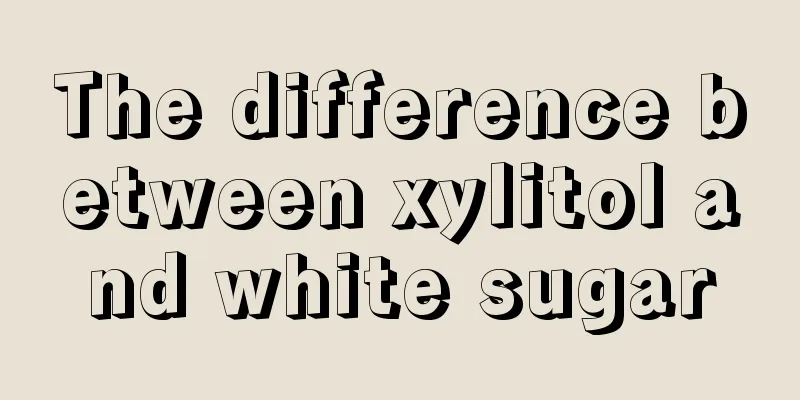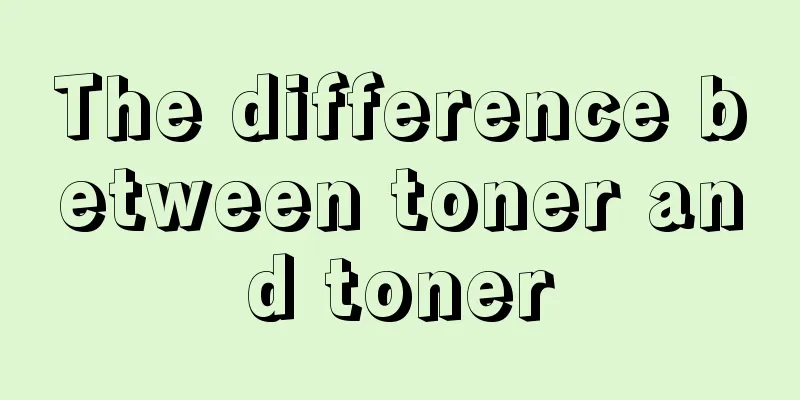The difference between xylitol and white sugar

|
White sugar is extracted from plants and its main component is sucrose. Ordinary white sugar is a two-carbon sugar, and there are many types. Xylitol is an additive extracted from natural plants that replaces white sugar. It is generally used in food additives and has a sweet taste. Xylitol appears in the form of white crystals or white powder. Xylitol is a very healthy substance and suitable for diabetics. Xylitol Xylitol, also known as pentaerythritol, is a type of sugar alcohol. It is a five-carbon sugar alcohol that can be used as a sucrose substitute. It is a product of xylose metabolism. Xylose is widely present in various plants, but due to its low content and high extraction cost, xylitol is obtained by hydrogenation reduction of xylose during food production. The sweetness of xylitol is comparable to that of sucrose, but the calories are much lower than sucrose. The difference between xylitol and white sugar 1. It can be used as a sweetener, nutrient and medicine and is widely used in chemical, food, pharmaceutical and other industries. The taste is lighter and the sugar content is slightly lower, not as sweet as sucrose. There is so much sugar, so the impact on teeth and diabetes is small. Because there is a lot of sugar cane, his cost is relatively cheap 2. The metabolic pathway of xylitol in the body is different from that of general sugars. It does not require the participation of insulin. Most of it is decomposed into carbon dioxide and excreted from the lungs through breathing. It does not increase blood sugar. Therefore, xylitol is often used as a sweetener for diabetics. 3. In addition to providing sweetness, xylitol also has a function that sucrose does not have. Xylitol can prevent tooth decay. Eating sugar causes tooth decay mainly because the sugar remaining on the teeth will be decomposed and utilized by microorganisms in the mouth, producing acidic substances that corrode the teeth. Xylitol is difficult to be utilized by microorganisms in the mouth and cannot produce acid, so it generally does not cause tooth decay. Experiments have shown that xylitol can reduce the incidence of tooth decay by 90% compared to sucrose. Xylitol can inhibit the growth and reproduction of mutant streptococci, so its intake will not cause tooth decay. Therefore, xylitol is added to chewing gum to protect teeth and prevent tooth decay. Note: 1. Avoid excessive consumption: Excessive consumption can cause diarrhea, because xylitol is not easily broken down by gastric enzymes and directly enters the intestines. Excessive consumption can irritate the gastrointestinal tract and may cause abdominal discomfort, bloating, and intestinal rumbling. Moreover, since the absorption rate of xylitol in the intestine is less than 20%, it is easy to accumulate in the intestinal wall and cause osmotic diarrhea. Therefore, it is not advisable to consume it in excess. It is recommended that the daily intake of xylitol should not exceed 25g. 2. Excessive consumption of xylitol will increase blood lipids. Eating too much xylitol will increase the triglyceride level in the blood and cause coronary atherosclerosis. Therefore, people with cardiovascular disease and diabetes should not eat too much xylitol. |
<<: Symptoms and treatment of liver depression and spleen dampness
>>: The difference between xylitol and sugar
Recommend
Do you know the complete list of Feng Shui taboos for decorating a new house?
Chinese people believe in the theory of Feng Shui...
Symptoms that will appear in the early stage after suffering from cardia cancer
After suffering from cardia cancer, the main symp...
What to do if your lips have pigmentation?
Some people are born with dark lips, but some peo...
How about applying toothpaste on the soles of your feet?
Toothpaste is one of the necessities in life. It ...
What are the examination items for liver disease?
There are many ways to check liver disease, such ...
Why does tooth acid occur when brushing teeth
Teeth are the hardest part of the human body, but...
What to do if the chili peppers are burned after washing your hands?
Many people feel a burning sensation on their han...
Is there any hope of getting pregnant if you have endometrial cancer?
Endometrial cancer is one of the three major mali...
Does early liver cancer need immunotherapy after surgery? Pay attention to these two points in the early treatment of liver cancer
Whether immunotherapy is needed after surgery for...
A brief talk about precautions after lung cancer surgery
Surgery is currently one of the preferred methods...
Teeth ache when drinking water
The health of teeth has a key impact on oral heal...
What skin color is blue suitable for?
Blue is a color that represents youthfulness and ...
How to treat glucocorticoid face effectively
Glucocorticoid face is what people often call hor...
Buckwheat health tea
What are the effects of buckwheat health tea? Dri...
Pseudo-drowning symptoms
Drowning is an emergency situation that occurs wh...









